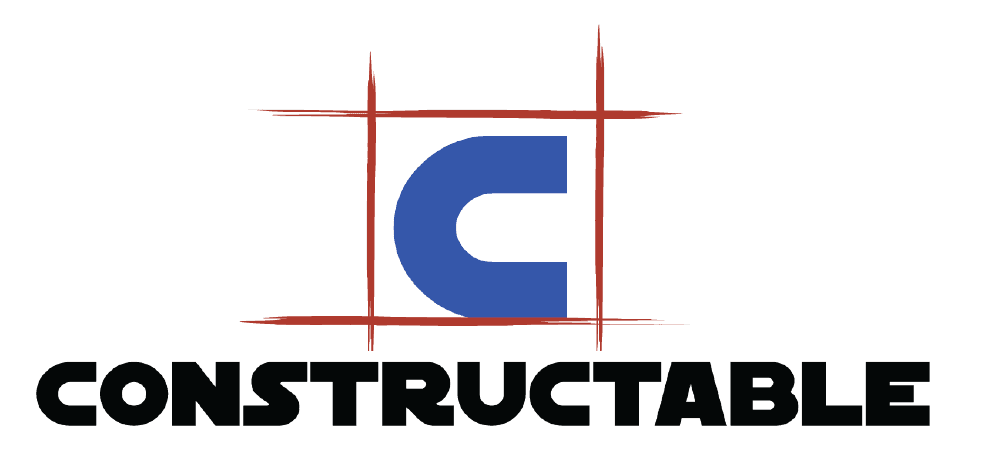
All For The Lowest Price
Business is an interesting ride, isn’t it? We are often strapping ourselves to volatile companies without knowing it, companies who are just trying to do the minimum amount possible after winning the job at your maximum allowable price. This strapping yourself to a volatile company is much like being attached to a booster rocket with very little control.
In the popular movie, Armageddon, one actor—also strapped to a booster rocket while sitting in a NASA shuttle on a fool’s mission to use a nuclear device to blow up a gigantic asteroid threatening earth—wryly comments:
“You know we’re sitting on four million pounds of fuel, one nuclear weapon and a thing that has 270,000 moving parts built by the lowest bidder. Makes you feel good, doesn’t it?”
There is something wrong with this story. This sequence plays out every day in real life, not only in the movies—save for the enormous asteroid and nuclear weapon. In fact, there is not only something wrong with this story, there is something completely backward about how we do business:
1. When you choose based on price alone, you sacrifice quality on the altar of money.
2. When you allow companies to come up with the minimum effort at the maximum price, you signal to them you are a person who can be had.
3. When you ignore the warning signs of a bad company, you endanger yourself, your career, your company, your team.
Every executive, manager, or business leader can tell stories about what he or she has sacrificed all “in service of the lowest price.” Often these projects become shipwrecks with no way forward in sight. Read about just such a shipwreck that we took over to rescue for a customer in our project gallery with the Kids On The Move job HERE.
Instead of strapping on a life-preserver in resignation to the inevitability of the construction process, what we should be doing is:
1. Choosing the best company, not the most inexpensive.
2. Choosing the most accurate and carefully-done proposal.
3. Choosing a company that can produce well, rather than produce cheaply.
4. Reward the companies that offer honest proposals and delivers every project.
5. Reward the company that will not only do the minimum requirements (whatever is on your plans and in your contract), but will go above and beyond what you have mandated.
“All for the lowest price.” What have you sacrificed for the lowest price? How far have you gone to get the lowest price? One of our customers puts it this way when they chose based on lowest price alone:
We were deep into a lengthy and expensive venture when our contractor walked off the site. The original contractor left a mess to clean up, leaning walls to be corrected, bills to be disputed, no subcontractors, and nowhere to turn.
“As a non-profit we tried to manage this job to save money; we soon learned that this approach was not desirable. In choosing to manage the project ourselves and a shoestring budget we had sacrificed quality. At this point, the project was completely stalled and we were very vulnerable, as we–the client–were just getting our feet wet in the world of construction management. But Jared [from Constructable] not only did not take advantage of us, he brought new quality to the project, took it on himself to correct the mistakes of the previous contractor, at cost to himself, and followed through with what he promised. That was the commitment to which he brought to the project.
And yes, he finished the job, taking a project from being in critical danger of failure to being fully completed. We even honored him by naming one of the rooms–once completed–after his son. We would definitely use him again; in fact, even though I had already left the organization, a few years later they did that very thing: hired him for a second engagement. That is the kind of reputation he carries. I highly recommend Jared and Constructable to you for any of your construction needs.”
When someone can take a failed project with miserable quality and rescue the customer’s needs, that is a proposal worth taking up. This is a project worth rescuing from the sacrificial fires of “all for the lowest price.”
The construction industry is full of companies and subcontractors doing the minimum required amount of work, just to get the job done quickly and profitably. And they expect the highest price they can get while still winning the job. How is that fair? Worse still, how did you ever let that company set foot on your job site?
When I say “Let me hire you for this job,” I mean “Do you best, give me your honest price, make sure the project is full of quality and up to specs.” When some companies hear “Let me hire you for this job” they hear “Let’s find a way to get the most money while doing the least amount of work possible.”
In the “all for the lowest price” thinking, you are saying one thing; the company is hearing another.
For example, have you ever said “Take out the trash!” to a teenager, perhaps your son or daughter? What you said is very different than what the typical teenager hears. We must never assume we have communicated the whole job: “Empty the trash, make sure there is no additional trash hidden behind the can, tie the drawstring, deposit the trash in the outside bin, close the outside bid lid, and then come back and replace the can liner…. and close the back door too.” What does he or she hear? “Move the trash in the can to the outside can. Then go play video games.” You are nearly certain to return to throw away trash in the future by being met with a liner-less can and an open back door and outside lid, letting in the rain. This teenager serves as an example of companies out there only fulfilling what is explicitly stated in your plans and on your contract.
So to mitigate this, as a business partner and stakeholder in the process, one needs to elaborate more about what the desire truly is. In the case of a teenager, walk him or her step by step through the process; train him or her how to fully complete a job; demonstrate how to think through the work and to be proactive so that he or she understands the real task behind my communication. In a company setting, I will make a blueprint dictating exactly what I need various companies to do. Most companies never rise beyond what is simply written on your plans. But as any project manager or seasoned businessperson knows, there is much more to successful and quality construction than what is written on the architect’s and engineer’s plans. It takes a company that wants to fulfill the needs of the customer fully to turn this “lines-on-paper-project” into a good one.
The company must be dedicated to doing more than just the minimum requirements at the maximum allowable price.
In the example of my teenager (fully played out just yesterday), perhaps I need to take more time to teach him or her to think critically and take my needs to heart, to realize that laziness is not ok around here, to demonstrate that quality standards here are enforced. Then I won’t have to restrict, threaten, force, and coerce with food rewards to get him or her to do what I want. While this trick might work with a teenager, can you really do this for a company?
Contracts and specs are just our way to ensure the minimum work is done. But what if you found a company that had your project at heart, not just on paper? What if you found someone who would require the best work from their team, subcontractors and inspire anyone on the project to do this one rightly instead of just doing the right things? I mean to draw a sharp contrast between doing right things (the minimum amount required / maximum cost allowed and whatever is written on your plans) and doing things rightly (ensuring quality at every step for a fair price and going beyond the call of duty). The person you want to hire is not the one you have to force to do things right. The company you have to hand hold is the one that will sink your productivity. And my teenager needs to grow up.
So how do you stop sacrificing everything (and everyone) on the altar of the “lowest price”?
1. Proper communication starts with the plans but continues with collaboration throughout the project.
We take time to make plans just right; we hire consultants and architects and engineers to ensure that our minimum viable product is completed. But all of that is worthless if your constructor does not follow these mandates and ensure quality the entire way.
It takes a good business relationship to work together on projects like this, one in which the construction company does more than just the minimum.
At Constructable, collaboration is at the heart of what we do. We give busy business professionals back their time and investment in us by working together through every step, requirement, and phase of any project. We will work just as hard—and with your needs at heart—whether you collaborate throughout or simply let us do it all. We know there is a real person and an important need at the end of every job that has to be done rightly, not just done to the letter of the plans.
2. Communication means very different things to different people.
When we go to interview someone for hire, we often offer a range: This job pays $XX dollars on the low end and $YY dollars on the high end. What does every single applicant hear? “This job pays $YY dollars if I get it.” Take this principle as certain for any contractors inquiring about prices on your project: Your maximum allowable price sounds like their opportunity to fix their proposal as a starting point. The customer is saying, “This is all I’m paying.” The contractor hears, “This is my starting point to negotiate.” How did communication get so off course?
It is apparent that if you only choose based on pricing, you bring risk to a project. What is the maximum price to you, is the starting point price to them.
3. Laws and plans only show the minimum.
One cannot legislate morality, only leverage fear of punishment for not conforming to the lowest level expectation. In the same way, a company can give the minimum viable product, but does not motivate for more if you choose all in service of the lowest price.
Laws in any given country only dictate what is the lowest standard of action. Can you imagine telling your wife or husband, “Today I did not steal, embezzle, tax evade, or even murder anyone; oh yeah and I also did not commit manslaughter,” as if that were something to be proud of. Laws can only dictate the minimum limit of where punishment begins. In the same way, plans on a blueprint only dictate the minimum required effort that a contractor has to do. Yes we can implement specs and requirements on different documents to try to get the company to rise above the minimum, but these are often hundreds of pages long documents that, in truth, not even the customer knows, much less enforces.
A busy business leader, small business owner, or project manager does not have the time or resources to inspect every little scruple in the specifications document.
4. Written specs and plans only tell the contractor how hard to try and no more.
Your “maximum effort” is just “getting by” to them.
When you want maximum effort and quality and efficiency, the contractor sees “How hard am I going to have to pretend and butter up the project leader so that he or she thinks I am doing a good job?”
I am not advocating against plans or spec books; what I am saying is that the selection of a contractor has to be more than just the price and legalistic plans as written. There will always be changes to your plans. That is why “as builts” are always different from the original work, to every architect’s chagrin. What kind of person and company do you want in charge of changes to the dictates of your plans and in what way do you want that company to finish? Do you want only the right things done, or for them to do things rightly the entire time?
It is going to take more than just choosing based on price. You have to choose based on quality, background, reputation, and ability to collaborate effectively as a project team.
Where there is no desire to do more, your project will turn out ok, possibly. But what if a company did do more than that? What if you had an agent to ensure that what you want is being done? What if your business partner collaborated constantly with you to make sure every single part of the project is done rightly?
At Constructable, our customer satisfaction model means we do things rightly project-long and collaborate project-wide. We want our customers to succeed and win together with us. We are not about cutting corners or simply giving what is on the plans. While we certainly hit the minimum viable product, we go above and beyond requirements to build a successfully-executed project that has your constant approval upon it.
If you want quality, you need to choose more than just the best price.
So how does one move a contractor from the minimum required / minimum viable product to actually replacing the garbage liner and closing the back door?
The way forward:
1. Choose based on best value, not best price.
Choosing for best value means avoiding the temptation to consider only price. Of course price is one of the most important things to consider. Of course you cannot blow your budget. Of course the schedule dragging on will empty your wallet faster than nearly anything. You could certainly hire for less people who have less experience and know how. You could lowball anyone and everyone in your path. But do you really want amateurs doing the work of the pros? We’re talking about boys doing the work of men.
So evaluate on price, yes, but also take a look at quality standards, communication processes, accountability and transparency. Check references. Take a quick look through the internet for reviews and ratings. Request safety and quality assurance manuals. The way to protect your project is to win in all of these areas.
2. Recruit companies that have your best interest at heart, not only their bottom line.
If you play fantasy football, you know that your trading partners do not have your best interest at heart. And the trade in fantasy football is at the same time the best and most dreaded play possible. You could be giving away the key to a winning season by sending that player to another team. Or you could be sending away a player who is soon to be a bust for a sleeper hit that no one thought would realize into a winner. The goal is to jettison the players who will tank your team (say because of injury, contract hold out, or whatever reason) to receive even better players who are about to peak. Then you—the “owner” of a football “team” for a season—can look like a genius in buying low and selling high. If you make a trade like this, your team does better, you seem smarter, and your friends begrudgingly remain in awe of your clairvoyance. This is the same strategy that investors have used for years.
But buy low and sell high will hurt your project. If you are trying to destroy your business partners, then, by all means, choose only companies that give you the best price. But if you actually want to win together (i.e. forge a partnership of trust that will carry you for years of successful projects), then choose base on best value. That means to recruit companies that are great at customer satisfaction, that have your best interest at heart (meaning they want to keep doing business with you so they will do more than expected), that are not so concerned with making money in the short term but are concerned about making money together with you for the long term.
This is the kind of company that has your best interest at heart. Together we can trade one great player for another: your running back who is about to explode into excellence where they have no ground game and his or her savant tight end who gains 20 more points per game than any other.
3. Build a culture of quality and not shortcuts or cheapness.
When you purchase only on price you signal to everyone else in your company and anyone who does business with you that shortcuts are expected, cheapness encouraged, and quality takes a backseat. Good help is hard to come by. Good projects are harder still, especially when you do not have good help. So why would anyone want to hire you if you cannot deliver with quality and efficiency?
But if you build a culture of no shortcuts, you can truly become the kind of company people want to do business with, even if your price is higher than the lowest bidder.
4. Yes, use contracts and plans, but lay out the heart of your expectations and find the companies that can fulfill them.
As we discussed earlier, contracts and blueprints only lay out the minimum viable product. They are the ineffective bureaucracies and speeding cops of the business world. They are truly ineffective to actually get anything done, but are simply a way to sue someone for not living up to their end of the bargain. You have got to find someone who cares about going the extra mile.
The “extra mile” was developed in the Bible where Jesus, the very best of persons to teach about having a heart of service toward others, told an oppressed people to do more than expected, even when forced to. It was a way of distinguishing just how different people who followed his way truly were. And going the extra mile (carrying a cloak for the oppressive Roman soldiers signaled that Jesus’ followers were indeed different) in business will certainly distinguish you from all others too. You will carry the reputation of a company to be trusted and to be done business with, all at the same time as you win together with your customers. Follow the contract and plans, but do expect more and find someone who will give you more.
5. Communicate honestly and openly and demand the same from everyone else.
Without communication a project will fail. Collaboration at every point is deeply needed. Plans and contracts communicate the minimum viable product (as duly established above), but you need that personal touch with your contractors to truly win together. Your need to be in the know about the project, to be able to approve submittals and transmittals, to be able to see quality enacted on your job site. Those are the things that only communication can fix. If you communicate well you set the tone for everyone else who interacts with your company.
6. Require collaboration at every point.
A project really gets moving when collaboration is at its finest. When your ideas and heard out and built into reality, everyone wins. The more you collaborate the better because you are getting your needed input and the contractor is getting his or her needed explanations and questions answered. There is no downside to collaboration. Most people do not engage in it because it takes effort and time. But a true company that is not only in service of the lowest price will welcome it.
Of course you might not have time for this kind of collaboration. Granted that companies and employees are busier than ever, but if you truly cannot collaborate, then opt for a design build contractor that can do an end-to-end project for you, with as much or as little collaboration as you want. We are the professionals. We are happy to do it for you without much supervision. You can trust someone like this because you’ve learned they will do more than just the plan requirements, because you have not sacrificed your project at the altar of the lowest price, and because you have communicated well at every point.
7. Require accountability all project long and visibility all project wide.
If a contractor spurns the idea of accountability and visibility, then game over. “Accountability project long” means the contractor updates and reports to you throughout the life of the job. “Visibility project wide” means you can take a look into anything going on in your site. Both long and wide considerations like this make for an idea collaboration and building environment.
Conclusion:
Remember that the goal is winning in the long term, not just the short, when you choose best value over lowest price. It might be difficult to convince your boss/stakeholders/shareholders to choose on best value and not only on price, but the task is worth the effort. Perhaps the greatest sports coach ever, John Wooden, was thinking of this when he said:
“If you don’t have time to do it right, when will you have time to do it again?” –John Wooden
Choosing best value is all about doing things right the first time. Your hidden costs on the back end will melt away when you do things right (best value choice) rather than do right things alone (simply stick to the plans and get out).
Finding the lowest price is a sure warning sign of trouble. It is a lazy way to liaise with business partners. Instead, discovering the best value empowers your company to achieve all that you wanted.
Here at Constructable:
At Constructable we take customer service beyond the minimum required effort; we go above and beyond to see our customers satisfied. When we give a price, it might not be the lowest, but the value is the best that you will find. We base our quotes and proposals on low prices, yes, but also on the finished product that you can be proud of. You are not the nameless, faceless customer on the raw end of the deal getting as little as required to complete the job. No, you are the focus of our energy, the one we will make happy through hard work, expertise, and delivering on time and on schedule. We collaborate project-long and give visibility project-wide as a matter of pride in our company. We encourage you to take a look behind the curtain and see just how we operate. Start a free, quality-assured estimate HERE.





